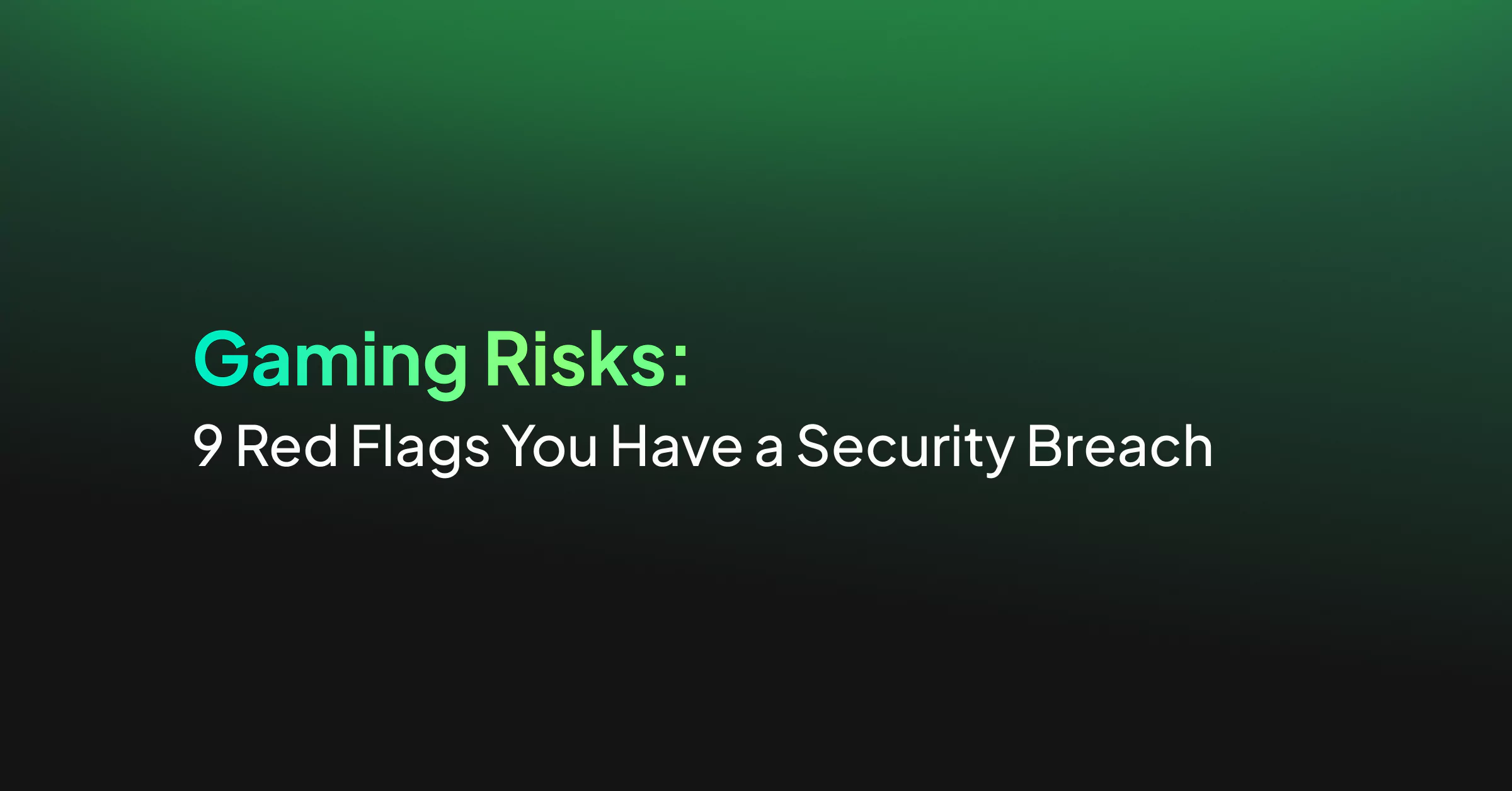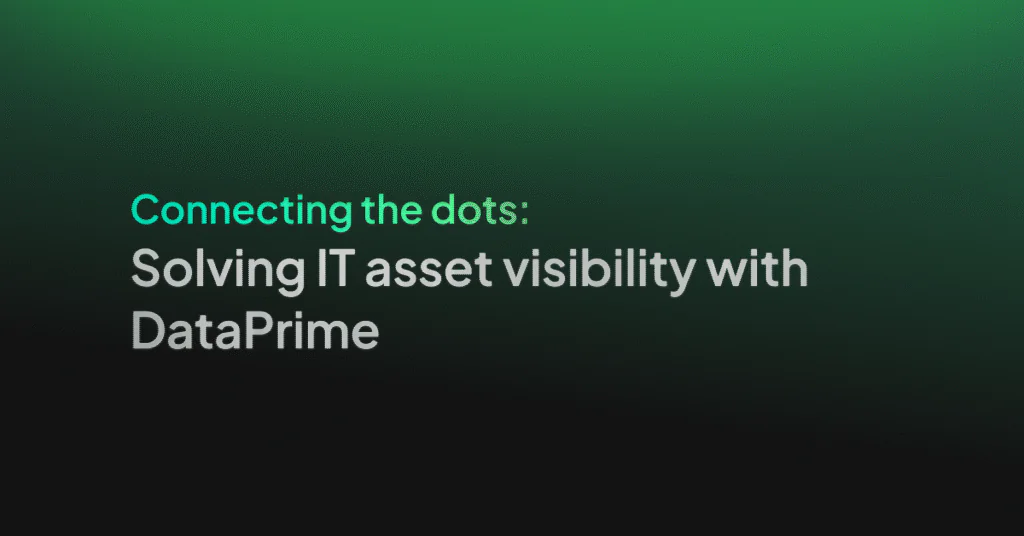Gaming Risks: 9 Red Flags You Have a Security Breach

The rapid growth of the gaming industry over the past 20 years has attracted undesired attention from hackers and cybercriminals, making it imperative to address the risks and vulnerabilities that can compromise the security of gaming apps.
To better prepare against future attacks, you need to know what are the exact online gaming risks. In this article, we will explore the challenges of online gaming security and highlight top key indicators of a security breach.
Get a strong observability platform for your gaming needs today.
Online gaming risks and challenges
Reducing online gaming risks poses significant challenges for developers. The interconnected nature of online gaming platforms exposes them to various threats and vulnerabilities. Here are some risks to watch out for:
- Data breaches: One major challenge for gaming companies is the risk of data breaches, as gaming platforms store extensive user data, including personal information and payment details. These valuable assets make them attractive targets for cybercriminals.
In recent years, the gaming industry has experienced a surge in security breaches. According to a recent report by TechCrunch, hackers stole Activision games and employee data, impacting millions of users. The incident highlights the scale and severity of security risks faced by the gaming industry. The report also demonstrates the pressing need for developers to implement stringent security measures to protect their platforms and users from the rising tide of cyber threats.
- Malware and spyware: Hackers can acquire user data from gaming companies’ servers, but that’s not the only avenue they exploit. Malware, like viruses, and spyware installed on users’ machines can also enable data theft.
Downloading a game from an unprotected website, even if the download is legal, can result in the installation of such malicious software. Phishing emails are another tactic employed by hackers, deceiving users into sharing their data under false pretenses. These actions can have severe consequences, exposing users to identity theft or draining their bank accounts, leading to stressful and potentially dangerous situations.
- DDos attacks: Cheating and hacking also present constant threats to fair gameplay, with players seeking unfair advantages or attempting to disrupt the gaming experience for others. Protecting against unauthorized access, tampering, and account takeovers becomes paramount. Online gaming security must also address issues such as server instability caused by Distributed Denial of Service (DDoS) attacks, which can lead to service disruptions and compromised gaming experiences.
9 gaming risks signs
Identifying red flags of a security breach in online gaming is crucial for game developers to promptly detect and mitigate potential gaming risks. Here are nine key indicators that may signify a security breach within online gaming platforms:
- Unusual account activity
Instances of multiple failed login attempts, unrecognized IP addresses, or sudden changes to account details can be indicative of unauthorized access attempts. Developers should closely monitor and investigate such activities to protect user accounts.
- Currency or asset manipulation
Sudden and unexplained alterations in in-game currency, virtual assets, or items can signal a security breach. Significant changes to players’ wealth or inventory without a legitimate reason should be investigated to prevent fraud or exploitation.
- Server instability and DDoS attacks
Frequent server disruptions, network instability, or DDos attacks, as mentioned above, can indicate vulnerabilities within the gaming infrastructure. Such attacks overload servers, causing gameplay interruptions and potentially compromising the security of the platform.
- Account takeovers
Instances where legitimate user accounts are compromised and taken over by unauthorized individuals raise significant security concerns. Signs of unauthorized account activity, including changes in gameplay behavior, should be investigated to prevent further compromise.
- Unexpected gameplay changes
Unintended modifications to the game environment, mechanics, or rules may be signs of unauthorized tampering or hacking. Sudden alterations, such as new cheats or glitches, can negatively impact the gaming experience and require immediate attention from developers.
- Social engineering attacks
Players receiving unsolicited messages, phishing attempts, or requests for personal information within the gaming community should raise suspicion. Social engineering attacks are aimed at tricking individuals into divulging sensitive data or credentials and can compromise the security of both players and the gaming platform.
- Unexplained performance degradation
Significant drops in game performance, including increased lag, decreased frame rates, or frequent crashes, could indicate malicious activity compromising the integrity of the game or the underlying infrastructure. These issues may be a result of security breaches that require investigation and resolution and can easily be detected using observability, which can push the gaming industry to the next level.
- Unusual network traffic
Monitoring network traffic patterns is essential for detecting security breaches. Unusually high or suspicious network traffic, particularly during non-peak hours, may indicate unauthorized access attempts or data exfiltration. Deviations from expected network behavior should be thoroughly investigated.
- Unauthorized game modifications
If players encounter unexpected changes or additions within the game, such as new levels, characters, or features, it could be a sign of unauthorized modifications. These alterations may introduce security vulnerabilities or compromise the fairness and integrity of the game.
How to secure your gaming apps
To fortify the security of gaming applications, developers can adopt the following proactive measures. Read on how to secure your gaming strategy:
- Get robust authentication mechanisms: Implementing multi-factor authentication and strong password policies can significantly reduce the risk of unauthorized access to user accounts.
- Do regular security audits: Conducting comprehensive security audits helps identify vulnerabilities and address them promptly before they can be exploited.
- Use encryption and secure communication: Utilizing strong encryption protocols and secure communication channels protects sensitive data from interception and unauthorized access.
- Get monitoring and incident response: Employing real-time monitoring systems and establishing incident response procedures enables quick detection and mitigation of security breaches.
- Implement user education and awareness: Educating players about online security best practices, such as avoiding suspicious links, practicing good password hygiene, and reporting suspicious activity, fosters a security-conscious gaming community.
Identifying security breaches and promptly investigating any suspicious activities or anomalies can help game developers mitigate online gaming risks and protect the integrity of their gaming platforms. The gaming industry, like any other sector operating in the digital landscape, needs robust cybersecurity measures to enhance the overall online gaming experience and safeguard user trust.




